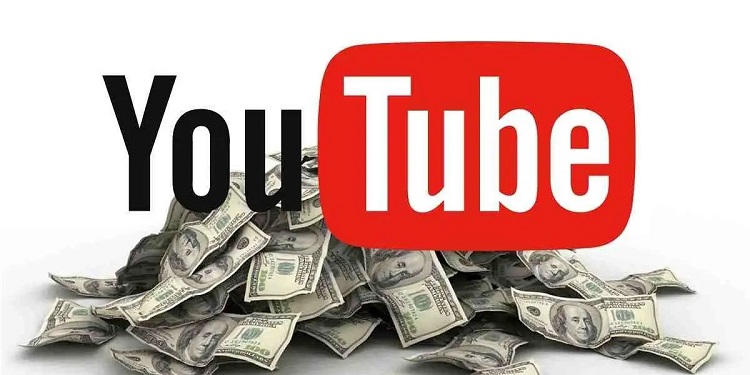Tech
Unlocking Revenue Streams: How YouTubers Make Money on YouTube
In today’s digital era, many people are curious about how YouTubers make money on YouTube.

In today’s digital era, many people are curious about how YouTubers make money on YouTube. Let’s explore the various monetization strategies that content creators employ to turn their passion into profit.
How YouTubers make money on YouTube
In the digital age, YouTube has emerged as a lucrative platform for creators to showcase their talents, share their passions, and build engaged communities.
However, what many may not realize is that YouTube also offers various avenues for content creators to monetize their videos and turn their passion into profit.
There are multiple avenues you can money money on YouTube, and successful YouTubers often utilize a combination of monetization strategies to maximize their earnings and support their content creation endeavors.
Let’s delve into the details of how YouTubers make money on YouTube from their content.
1. Ad Revenue
One of the primary ways YouTubers make money on YouTube is through advertisements. YouTube’s Partner Program allows creators to monetize their videos by displaying ads before, during, or after their content. Creators earn a portion of the advertising revenue generated by these ads, with factors such as watch time, engagement, and audience demographics influencing earnings.
2. Sponsorships and Brand Deals
Another lucrative revenue stream for YouTubers is through sponsorships and brand deals. Brands often collaborate with popular YouTubers to promote their products or services in sponsored videos or integrated content. These partnerships can range from product placements and endorsements to dedicated sponsorships, with creators negotiating fees based on their audience reach and influence.
3. Affiliate Marketing
Many YouTubers leverage affiliate marketing to earn commissions by promoting products or services and including affiliate links in their video descriptions. When viewers make a purchase through these affiliate links, the creator receives a percentage of the sale as commission. Affiliate marketing allows YouTubers to monetize their recommendations and endorsements effectively.
4. Merchandise Sales
Some YouTubers create and sell branded merchandise such as clothing, accessories, or digital products to their audience. Merchandise sales provide creators with a direct source of revenue while also allowing them to connect with their fans on a more personal level. Platforms like Teespring and Merch by Amazon facilitate the creation and sale of custom merchandise for YouTubers.
5. Channel Memberships and Subscriptions
YouTube offers a Channel Membership feature that allows creators to offer exclusive perks, content, and badges to subscribers in exchange for a monthly fee. Additionally, some creators opt to join YouTube’s Premium Subscription program, where subscribers pay a monthly fee to access ad-free content and exclusive features. Channel Memberships and subscriptions provide creators with recurring revenue streams and incentivize viewer support.
6. Crowdfunding and Donations
Crowdfunding platforms like Patreon and Ko-fi enable YouTubers to receive financial support from their viewers through one-time donations or ongoing contributions. Creators often offer exclusive rewards or perks to supporters as a token of appreciation for their generosity. Crowdfunding and donations provide creators with additional income and foster a sense of community and solidarity among their audience.
In conclusion, understanding how YouTubers make money on YouTube requires insight into the diverse monetization strategies they employ. From advertisements and sponsored content to affiliate marketing and merchandise sales, content creators have multiple avenues to generate revenue on the platform.
By strategically leveraging these monetization methods and cultivating engaged audiences, YouTubers can turn their passion for creating content into a sustainable source of income. As demonstrated throughout this guide, mastering the art of monetization is essential for YouTubers seeking to thrive in the digital landscape. By continuously adapting to changes in the platform’s policies and audience preferences, content creators can unlock new opportunities for growth and financial success.
In essence, how YouTubers make money on YouTube is not just about earning revenue, but also about building and nurturing communities, sharing valuable content, and pursuing their creative passions to the fullest extent.
























You must be logged in to post a comment Login